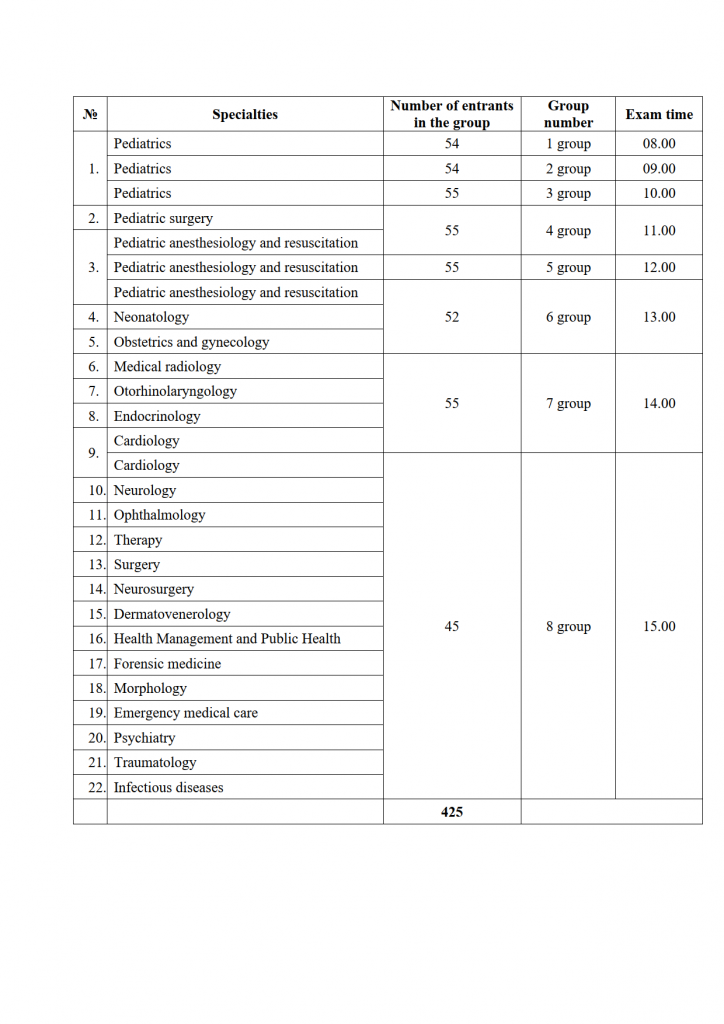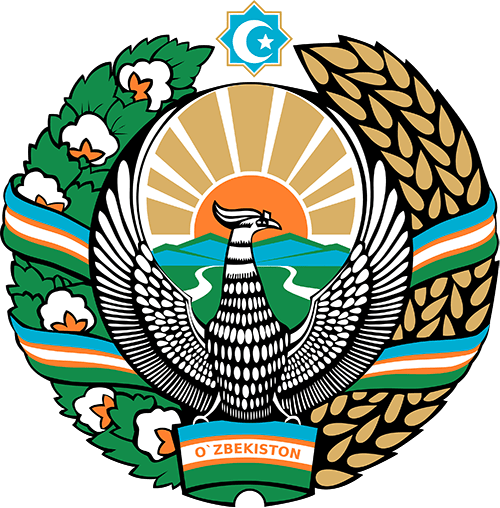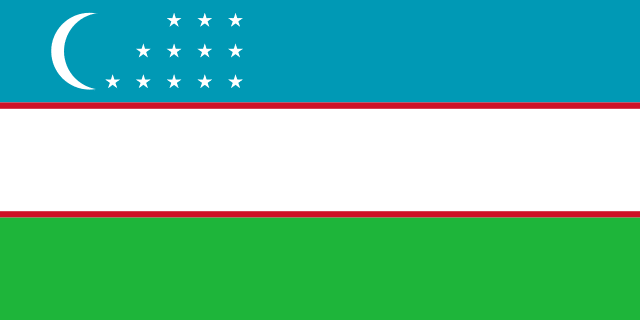The national emblem of the Republic of Uzbekistan reflects the history, high spirituality, eternal values and way of life of Uzbek people. Each element, color and sign of the emblem has its own symbolic meaning. The emblem is set off by a garland of cotton branches with open cotton bolls and ears of wheat. Wheatears are the symbol of the daily bread; stems with open cotton bolls are the main wealth of the sunny land, which have glorified it throughout the world. Stems and cotton bolls, tangled with a ribbon of the state flag, represent the solidarity of the peoples living in the republic. There is the sun depicted on the emblem, the golden rays of which are piercing through the blossoming valley. The representation of the sun is the wish that the way of the state has always been lit up with a glare. At the same time, the sun reflects the unique natural and climatic conditions of the republic. Rivers flowing down from the mountains symbolize a sanguineous life. Inside the octagon, placed in the top of the emblem and embodying the freedom and unity of the people, there is a crescent and stars, shining against the background of the blue sky. This is a symbol of eternity, national traditions and values, high spirituality, strength of will and faith. Humo bird with extended wings, located in the center of the emblem, has long been considered a symbol of fidelity and love of freedom. Great Uzbek poet, Alisher Navoi characterized Humo bird as the kindest of all living beings. There is an inscription "Uzbekistan" at the bottom of the emblem, drawn on the base of the garland of the state flag with golden letters. The State Emblem of the Republic of Uzbekistan was approved on July 2, 1992 at the tenth session of the Supreme Council of the Republic of Uzbekistan.




